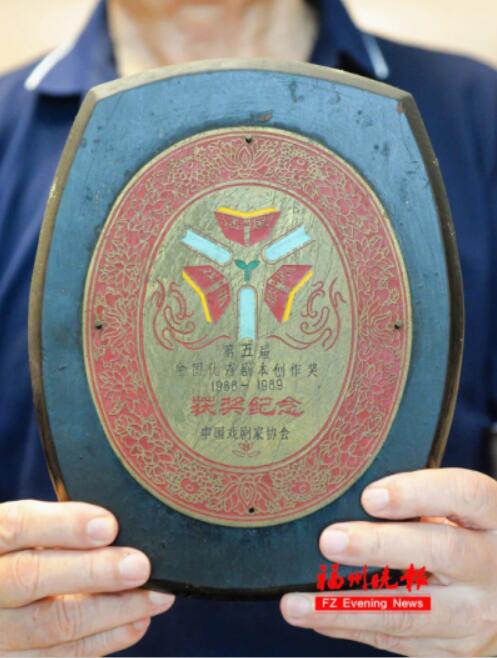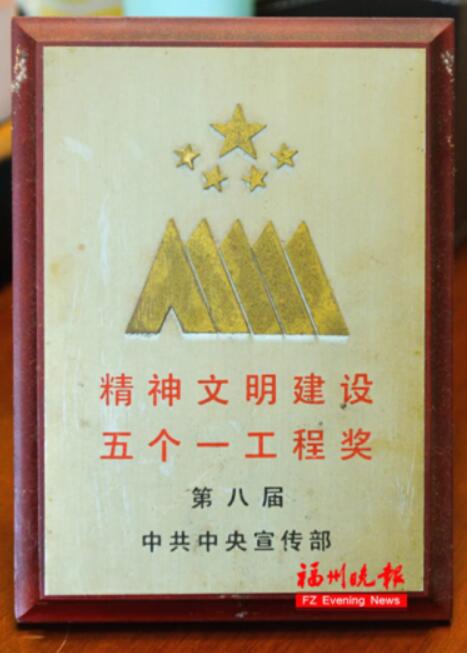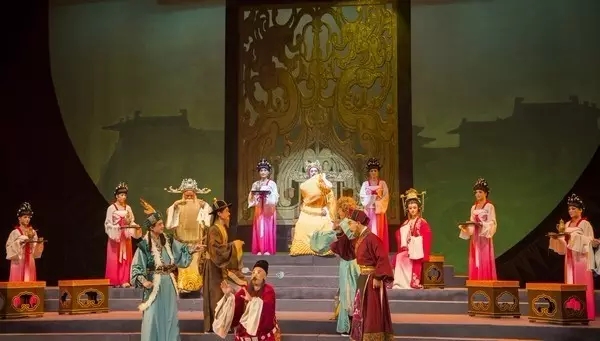Playwright from Pingtan claims three national honors
en.ptnet.cn | Updated:2021-08-12He, who claims to be an unimpressive playwright in an average troupe from a small island; he, at the age of 40, decided not to be mediocre and started his writing; although he was ranked national first place three times, he is not prepared to settle for the honors. He is Chen Daogui, a Min Opera playwright from Pingtan, an island city off E China’s Fujian province.
Since 1984, the veteran playwright has created 70 scripts for the opera. Reporters from Fuzhou Evening News interviewed 75-year-old Chen on his art life.
Farmer turned playwright, at age 38
Chen Daogui liked watching Min Opera since he was little. He never missed an opera whenever a troupe set up a stage to perform in the countryside. In the 1980s when China launched the opening-up and reform policy, the Min Opera performance market boomed. However, there was a scarcity of opera "fodder" – scripts.
Wu Jintai, then director of the Cultural Affairs Bureau of Pingtan, thought of Chen Daogui, who was 38 years old and worked as a temporary agricultural statistician in a local commune at the time.
Wu had noticed that Chen had written scripts for sketches, stand-up comedy, and other art forms in his free time and believed he had a talent for writing scripts.
When Chen Daogui worked in Pingtan Min Opera Troupe as a scriptwriter, he worked with then head of the troupe to complete the fragmented work The Temple of Hundred Flowers.

Recalling the past, Chen Daogui says creators need to abandon distracting thoughts at work.
During that period, Chen did not have a fixed abode, so he could only combine tables into one bed at night, disassemble the bed by day, and had cold steamed buns with boiled water in the office. After less than three months, The Temple of Hundred Flowers was staged and became a hit.
The play received rave reviews and critics commented it injected vigor into the Min Opera. Later, they wrote the prequel and sequel to The Temple of Hundred Flowers. Over 1,000 performances had been put on for the following decade.
The creative philosophy that Chen adheres to is walking into the mass market before ascending to the art palace. His work emphasizes the combination of being folksy, legendary, and comedic through the ups and downs of the plot to beckon the audience to the theater.
No pains go vain


Chen Daogui's works have won many awards.
Chen Daogui won three national awards one after another. In 1990, his Swan Feast topped the list of the 5th National Excellent Screenplay Award (predecessor of the Cao Yu Drama Award). Again, it won the Wenhua Play Award under the first Wenhua Prize established by the Ministry of Culture. The subsequent work Record of Drawing a Dragon received the Five One Project Award initiated by the Publicity Department of the Communist Party of China.

Min Opera Swan Feast
Chen retired in 2007, but he didn’t cease penning. In the 26th and 27th Fujian Opera Show, Chen’s six works stood out. Another two works were included in the National Arts Funded Project in 2016 and 2018.
His work Emperor’s Son-in-Law from Longtai has been invited to participate in the 16th Chinese Opera Festival in Beijing.
Pursuit of “three happiness” in retired life
Earlier, Chen Daogui's WeChat alias was "Swan Feast," which was recently changed to "Sanlexuan" which indicates the three happiness indicators for the elderly, i.e., a secure and healthy body, good family relationships, and a contented mind.
For this, Chen Daogui walks a long distance to park every day to exercise and practices his own "three sets of aerobics"-double-hand sky-lifting posture, push-ups, and swing arms while raising on tip-toes.
He noted: "Absorb the vital essence of nature in the park to fuel inspiration.”
Spotted a mistake or want to add something? All rights reserved. Do not reproduce our content without permission–you can contact us directly on our Facebook messenger or Twitter mailbox. Follow @pingtanchina (Facebook/Twitter)

 Fujian Public Security Registration Code: 35012802000271
Fujian Public Security Registration Code: 35012802000271